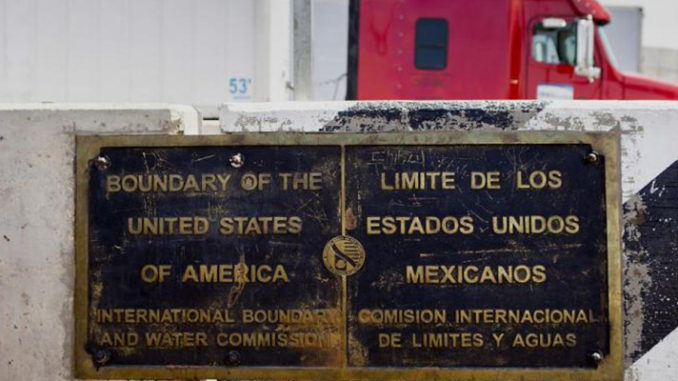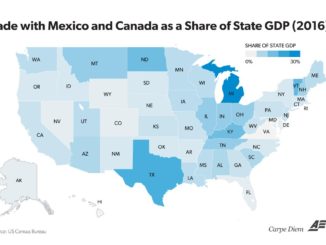
by Neil Herrington and Jon Baselice
President Trump again raised the possibility of closing the U.S. border with Mexico in response to the growing surge of migrants arriving from Central America. The President’s frustration over the current situation along our southern land border is shared by many, including federal officials who have declared the U.S. government’s ability to deal with the influx of migrants to be at a breaking point.
It’s a key reason why the U.S. Chamber continues to call on Congress and the administration to find a common sense solution on immigration that would pair increased resources for our nation’s border security efforts with protections and legal status for Dreamers – young men and women brought to the U.S. as children through no fault of their own – and long-term Temporary Protected Status beneficiaries. We also recently outlined steps the U.S. government could take to address the crisis at its origin in the Northern Triangle countries of El Salvador, Guatemala and Honduras.
Closing the U.S.-Mexico border, however, would only produce an economic calamity. For a White House that can legitimately claim significant economic accomplishments and has reportedly considered softening its stance in trade negotiations with China to calm markets, such a move would be as counterintuitive as it would be counterproductive. That’s because a quick look at the numbers reveals that sealing off the southern border could lead to economic consequences even more devastating than a trade war with the Chinese.
It might surprise some that annual U.S. goods exports to Mexico exceed those to China by more than $100 billion ($243 billion vs. $130 billion in 2017). And according to the U.S. Department of Transportation, a whopping 85% of these exports – $206 billion – were shipped to Mexico via truck or rail.
With a wide range of U.S. businesses reeling from retaliatory tariffs on agricultural products, consumer goods, manufacturing inputs, and beyond, closure of the southern border could pose an existential threat for many U.S. exporters.
And, of course, exports are just half of the equation. The overwhelming majority of the $300 billion in goods the U.S. imports from Mexico also arrive via terrestrial means. Over the 25 years the North American Free Trade Agreement (NAFTA) has been in force, countless U.S. manufacturers have built integrated supply chains reliant on a steady stream of Mexican inputs.
Consider the U.S. auto industry, which is prospering today. Production has doubled over the past decade, it exports more than any other industry, and it employs nearly 50% more Americans than it did in 2011. Part of this success depends on firms’ ability to seamlessly ship across borders. The sector singlehandedly accounts for more than one-quarter of total bilateral goods trade between the U.S. and Mexico, and the typical automotive component crosses a North American border eight times in the assembly process.
While the whole country stands to lose from even a short-term closure of the U.S.-Mexico frontier, no group stands to lose more than U.S. border communities like Brownsville, McAllen, Laredo, El Paso and San Diego, for which economic and social ties to Mexico are essential. According to the Laredo Chamber of Commerce, an average of 16,000 trucks and 1,400 rail cars crossed the city’s border each day as the Port of Laredo alone handled more than 50% of U.S.-Mexico bilateral goods traded in 2017.
The San Ysidro border crossing in San Diego County is the busiest passenger land port in the Western Hemisphere, processing 120,000 commuter vehicles and 63,000 pedestrians each day. So many area residents cross the border daily to work, shop, or attend school that the San Ysidro Chamber of Commerce estimates that the local economy suffered lost revenues of $5.3 million just in the five-hour period the border was closed last November.
In the border region and far beyond, many of the five million American jobs that depend on trade with Mexico would be put in immediate jeopardy through closure of our southern border. From an economic standpoint, closing our doors to the $1.7 billion dollars in daily goods trade with Mexico would be an unforced error that would inflict lasting damage on U.S. markets and economic growth.
In the interest of preserving the significant economic gains President Trump has achieved, closing the U.S.-Mexico border is not an option. It would be an unmitigated economic debacle.
Instead, let’s all roll up our sleeves, secure the border, fix our broken immigration system, work to stabilize the situation in Central America, and ensure lasting and shared North American prosperity by securing congressional approval of the Trump administration’s landmark U.S.-Mexico-Canada Agreement (USMCA).
Neil Herrington is senior vice president for the Americas Department at the U.S. Chamber of Commerce.



